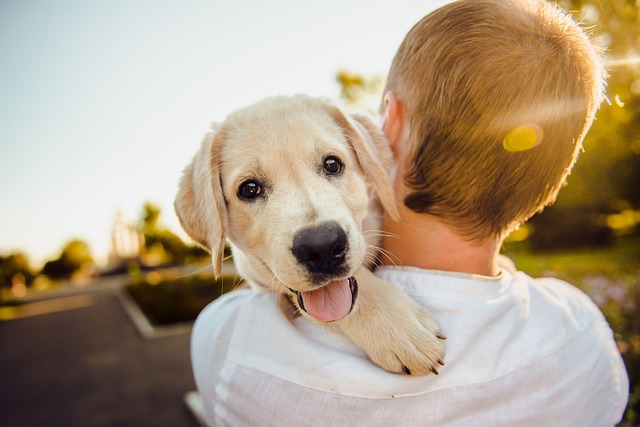+91 8073387610

Hey you dog lovers ! Are you a new pet parent? Let us look at some essential tips for caring for new puppies.
Caring for new puppies requires attention, patience, and consistency.
Tips for caring for new puppies
Here are some essential tips to help you care for your new puppies:
Puppy-Proof Your Home
Create a safe environment for your puppies by puppy-proofing your home.
Remove any hazards or items that could be chewed on or swallowed, secure electrical cords, and block off areas that are off-limits to the puppies.
Establish a Routine
Set a consistent daily routine for feeding, bathroom breaks, playtime, and rest.
Puppies thrive on routine, and it helps them understand what is expected of them.
Stick to a regular schedule to promote their overall well-being and facilitate their training.
Provide Proper Nutrition
Feed your puppies a high-quality, age-appropriate puppy food that meets their nutritional needs. Follow the feeding guidelines recommended by the food manufacturer and consult with your veterinarian for specific dietary advice.
Monitor their weight and adjust the portion sizes as necessary.
Socialize and Expose to New Experiences
Introduce your puppies to different people, animals, environments, and experiences during their critical socialization period (up to around 16 weeks of age).
Proper socialization helps them become well-adjusted, confident, and friendly adult dogs.
Gradually expose them to new situations, ensuring positive and controlled interactions.
Start Basic Training
Begin training your puppies as early as possible.
Teach them basic commands such as sit, stay, come, and leash walking.
Use positive reinforcement techniques, reward-based training, and plenty of patience.
Consider enrolling in puppy training classes to enhance their socialization and training.
Provide Mental and Physical Stimulation
Puppies have energy to burn and need mental and physical stimulation to prevent boredom and destructive behavior. P
rovide them with interactive toys, puzzle games, supervised playtime, and short walks appropriate for their age and breed.
Practice Positive Reinforcement
Use positive reinforcement to reward and encourage desired behaviors.
Praise, treats, and affection are effective tools for reinforcing good behavior and teaching your puppies what is expected of them.
Avoid punishment or harsh training methods, as they can lead to fear or aggression.
Establish a Comfortable Sleeping Area
Set up a cozy, designated sleeping area for your puppies.
Provide soft bedding, a crate or a comfortable bed, and a quiet space where they can rest undisturbed.
A warm and secure sleeping environment promotes their sense of security and relaxation.
Regular Veterinary Care
Schedule regular veterinary check-ups for your puppies to ensure they receive vaccinations, preventive treatments, and necessary health assessments.
Follow the recommended vaccination schedule and consult your veterinarian for advice on parasite control, nutrition, and overall well-being.
Shower Them with Love and Affection
Puppies thrive on love and attention. Spend quality time bonding with your puppies, provide affectionate touches, and engage in gentle play.
Building a strong emotional connection with your puppies strengthens the human-dog bond and promotes their happiness and well-being.
Remember, each puppy is unique, and individual needs may vary. Pay attention to your puppies’ behavior, health, and happiness, and make adjustments accordingly.
Seek guidance from a veterinarian or professional dog trainer if you have specific concerns or questions about your puppies’ care.





